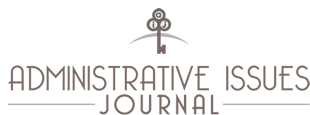
Abstract
In an era of increasingly hyped Massive Open Online Courses (MOOCs) that seem to evoke feelings of both promise and peril for higher education, many institutions are struggling to find their niche among top-tier Ivy League schools offering courses to thousands of participants for free. While the effectiveness of MOOCs in terms of learning outcomes and student persistence is still unclear (see Daniel, 2012; Kirschner, 2012; and Jordan, 2013), one benefit of the trend are the innovative adaptations that smaller-sized, regional institutions have begun testing as alternative in-roads into the MOOC era. The Targeted Open Online Course (TOOC) model allowed one midsized regional institution to leverage existing area partnerships/relationships with stakeholders to offer an online course for professional development and even actual graduate course credit. The following paper presents a comprehensive description of the TOOC model, including the administrative, enrollment, marketing, student support, development, and pedagogical considerations of planning and implementation. Additional data regarding persistence rates, affective gains, and recruitment outcomes will be shared.
Recommended Citation
Baker, Credence and Gentry, James
(2014)
"The Targeted Open Online Course (TOOC) Model,"
Administrative Issues Journal: Vol. 4:
Iss.
1, Article 3.
Available at:
https://dc.swosu.edu/aij/vol4/iss1/3
Included in
Health and Medical Administration Commons, Higher Education Administration Commons, Public Administration Commons
Please consider contributing an article to Administrative Issues Journal, our submission policy: http://www.swosu.edu/academics/aij/guidelines.aspx
